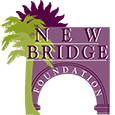Prescription drug abuse isn’t always easy to spot. When someone has a legitimate prescription, it can be hard to tell the difference between proper use and misuse. But over time, patterns emerge—changes in behavior, physical health, and emotional stability that point to something deeper than just taking medication.
For friends, family, and caregivers, knowing what to look for is the first step toward helping a loved one break free from addiction.
Understanding the Difference: Proper Use vs. Prescription Drug Abuse
Medications serve a purpose: to relieve pain, manage symptoms, or improve quality of life. When taken as prescribed, they can help without causing harm. But misuse begins when a person takes a drug differently than intended, whether by increasing the dose, using someone else’s prescription, or seeking the drug for its effects rather than its medical benefits.
Certain behaviors can signal that prescription drug use has crossed the line into abuse. Your loved one might take more than prescribed or run out of medication too soon, suggesting they are using it beyond what is medically necessary. Some visit multiple doctors to obtain extra prescriptions, while others use the medication for reasons unrelated to health, such as relaxation or an energy boost. When questioned, they may lie about their use, hide pills, or deny any issue altogether. Over time, withdrawal symptoms may develop between doses or after stopping, making it even harder to break the cycle.
Since misuse often starts gradually, recognizing the signs early can prevent long-term damage. Prescription drug abuse doesn’t happen overnight—it begins with small changes that seem insignificant but gradually become impossible to ignore.
Behavioral Signs of Prescription Drug Abuse
Changes in behavior can be one of the biggest indicators that something is wrong. A loved one who once followed routines, kept commitments, or managed responsibilities may begin acting differently in ways that don’t add up.
- Unexplained mood swings, irritability, or hostility
- Increased secrecy or defensiveness about medication use
- Loss of interest in hobbies, relationships, or responsibilities
- Risky behaviors, such as driving under the influence or mixing substances
- Financial issues, including borrowing money or missing bills due to drug costs
When a person is caught in the cycle of addiction, their priorities shift. Their relationships, job, and daily life may start revolving around getting and using the drug.
Physical Signs: What Prescription Drug Abuse Looks Like
Certain prescription drugs slow the body down, while others speed it up. The physical signs depend on the type of drug being misused, but some common warning signs include:
- Slurred speech, drowsiness, or difficulty staying awake (opioids and sedatives)
- Restlessness, rapid speech, or heightened energy levels (stimulants)
- Changes in appetite, weight loss, or unexplained nausea
- Pinpoint or dilated pupils, depending on the drug
- Frequent complaints of needing more medication due to “lost” or “stolen” pills
Emotional and Psychological Red Flags
Prescription drug abuse doesn’t just affect the body—it changes how a person thinks and feels. Anxiety, paranoia, and depression can become more intense, especially if someone is misusing stimulants or sedatives. Many people struggle with focus and memory, finding it harder to process information or make decisions.
Although a loved one may insist they need the medication, noticeable behavioral changes can reveal a deeper issue. They might withdraw emotionally, become easily frustrated, or seem detached from reality. Over time, the emotional weight of addiction can lead to deep feelings of guilt and isolation, making it even harder to reach out for help.
When It’s Time to Step In
If you suspect a loved one is misusing prescription drugs, it’s important to take action sooner rather than later. Addiction isn’t just a phase—it’s a progressive condition that becomes harder to reverse over time.
Start by having an open, honest conversation. Express your concerns without judgment, and listen to their perspective. They may deny the problem at first, but planting the seed of concern can make a difference. Encouraging them to speak with a medical professional or seek treatment can provide a path forward.
Finding Professional Support at New Bridge Foundation®
When prescription drug abuse takes hold, professional treatment offers a way out. At New Bridge Foundation®, we provide compassionate, evidence-based care for those struggling with prescription drug addiction.
Voted one of America’s “Best Addiction Treatment Centers” by Newsweek five years in a row, we offer detox, residential treatment, and outpatient programs tailored to each person’s needs. Our holistic approach addresses both the physical and emotional challenges of addiction, helping people rebuild their lives with the right tools and support.
If someone you love is showing signs of prescription drug abuse, don’t wait for things to get worse. Call New Bridge Foundation® at 866.772.8491 today and take the first step toward recovery.








